Top execs and tech CEOs reveal their secrets to being a successful leader
Former Pepsi president and Apple CEO John Sculley says you have to stay insatiably curiosity throughout your career.

Cleveland Cavaliers forward LeBron James says you have to practice what you preach.

LeBron James: "Some people were born with it, but some people learn it. For me, as the leader of our franchise and the leader of my household and the leader of so many different things, I think it's about confidence but also practicing what you preach. I take that responsibility and I don't just talk about it; I actually do it as well. When you're able to come through on your word, it allows the guys that you're leading, male or female, to be able to say, "OK. We can follow this person because he won't let us down. No matter if it's going good or bad." Every day is not a bed of roses, we understand that, and you have to be able to handle adversity as well."
Lyft president John Zimmer says leaders should be nice to their team members and their customers.
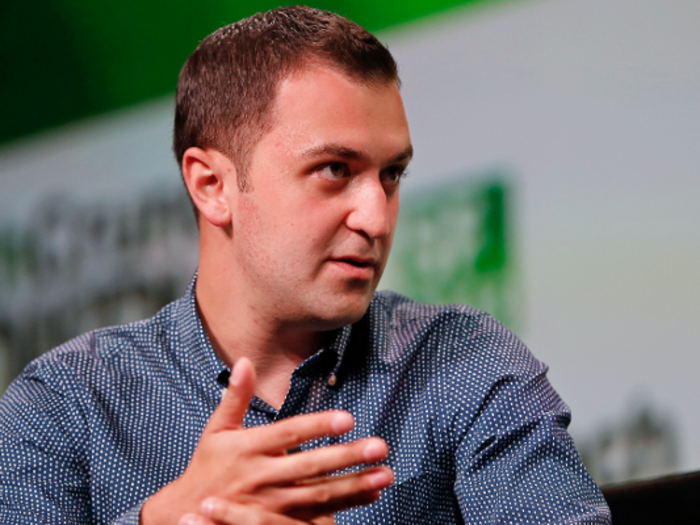
John Zimmer: "Treating people well is great for business; it is complementary to doing well in business. But there's been this story told of founders who are just not nice to people and that's what it takes to get ahead, and that's just not true. What I do know is that most businesses require other people to help you get where you need to go. Whether that's our employees, which we call team members, whether that's in our case the drivers or customers, passengers who are using the service, great service, great hospitality, treating people well, having a good set of values. That is great for business."
PayPal CEO Dan Schulman encourages leaders to recognize the contributions of their team.
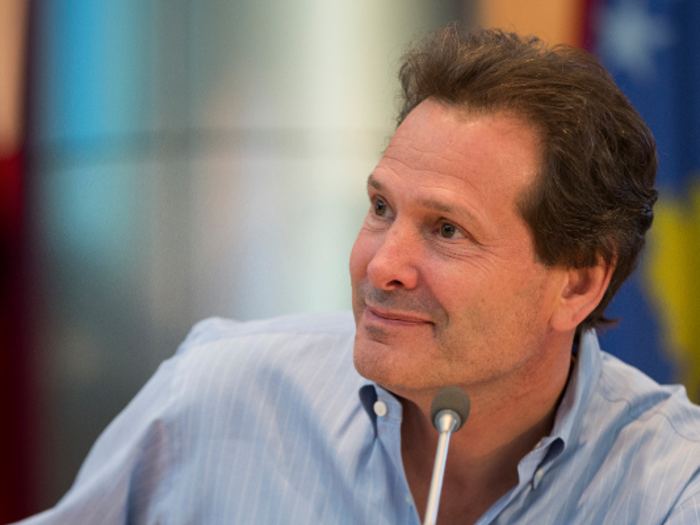
Dan Schulman: "When I came back, my team had really hung in there with me and I just realized that what we had accomplished was completely what they had accomplished. I gave them full, 100% credit. What I learned there is, giving credit to others actually attracts more and more people to your team because they want to be a part of that team because they know that it's a team that is going to work together as one team; nobody's going to try to take credit over somebody else. In many ways, leadership is about defining reality and inspiring hope, but if you have these great people around you and they know that what they do is going to be recognized, it can be incredibly powerful."
Former White House press secretary Dana Perino says managers should give their employees the opportunity to take on more responsibilities and grow.

Dana Perino: "Tony Snow — because he was not territorial and he certainly did not think he was too big for his britches — was very comfortable allowing me to fill in for him. The first time I filled in for him was like his second week on the job. I had never even been on television before and I was very happy to be behind the scenes. I remember he said to me, "You are better at this than you think you are." And I think he saw something in me that I didn't recognize. I also encourage managers to think about that, which is that your success can be measured by the people that you train and that you promote and don't hold people back. Let them have some face time with the boss. And that's why I was such a good deputy for Tony Snow because he actually let me do stuff."
BuzzFeed CEO Jonah Peretti says leaders should not start a business if they're only interested in making money.

Jonah Peretti: "You shouldn't be a CEO or even a startup executive or employee if you don't like things that are hard and challenging, and you don't like trying to do things that are difficult, where you have to figure out new things that don't exist yet. That has to be part of why you do it. It has to be part of the fun. They say when there's a bubble or lots of money flows into startups, you have a lot of people who come in because they want to make a lot of money. It's just a lot harder than it looks. Harder meaning the day-to-day is trying to create something new and trying to be a little guy in a giant industry. If you love that, if you love the struggle, and that's part of why you do it, it also makes selling a company a lot less appealing. Because if the idea is you're doing it so you can relax, you wouldn't be building the company in the first place if your goal was to relax."
Investor Scott Belsky says leaders need to be aware that there's a dark side to leadership that most people don't talk about.

Scott Belsky: "As the leader of a company, it's always lonely. You look for mentors and other people that you can go to for specific things, and I think I did that. I didn’t have anyone who I could just tell everything to and who could just be there, you know, shoulder to shoulder with me until we actually raised money. Until then, I was really selective about it and it was really lonely. It was anxiety-filled, and I also believe that as an entrepreneur one of the greatest costs is the constant processing of uncertainty that your brain is managing. It's almost like dedicating 20% of your RAM to one task that is always running. And you're never as present with your family, or your friends, and you're always just processing. And that's really, really hard, but it's part of the cognitive costs you pay."
Oath CEO Tim Armstrong says leaders should not be afraid to take risks and fail.
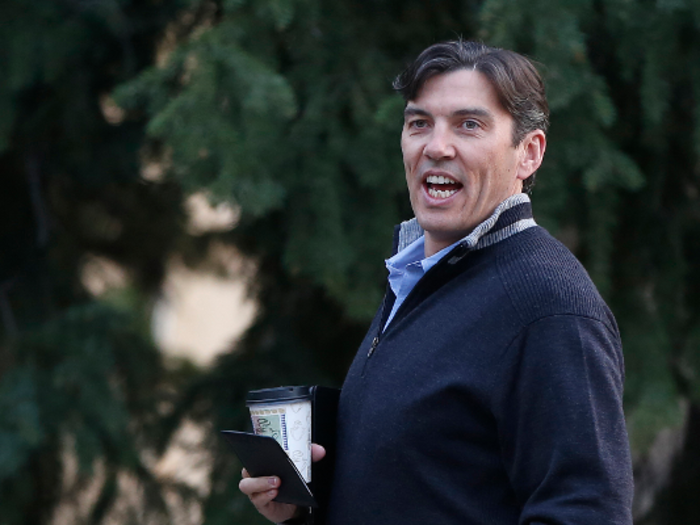
Tim Armstrong: "In a CEO job, you have to be OK with risk and you have to be OK with failure. I have a saying: "You have to fail toward a goal." As long as you're failing, if you know what the goal is, it's OK to fail in that direction. And that's the advice I got from people."
DropBox CEO Drew Houston says leaders need to be prepared to have their job description changed while the company grows, and they need to train themselves to be ready for those changes.
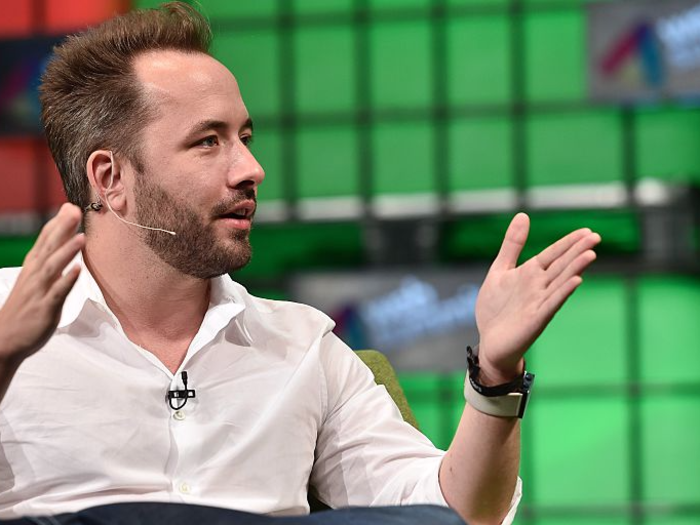
Drew Houston: "At first you have to be systematic about training yourself, and what you really want to solve for as a founder is making sure that your growth curve stays ahead of the company's growth curve. And so that means figuring out what you don't know and learning it, and no one is going to do that for you. The challenge, especially as a company that is scaling, is that your job as a CEO changes every 12 to 18 months — it's just that no one taps you on the shoulder and tells you that. So, for example, in the beginning, you're just spending time building a prototype, and it's all about creating the product. But then once you have a product, you need users. How do you get distribution, how do you grow? That's a whole different challenge. And then the scorecard changes again once you have distribution, then you need revenue, and then you need a working business model. Then you get competitors, and then it's not just revenue, but it's cash flow or profit. So as in real life, the scorecard changes at these different break points and points of adolescence or maturity in the company. That's probably the most bewildering part of the job is that your job changes so much. Just when you think you're getting good at the old job, you have a new one that is totally unfamiliar."
Former CIA director John Brennan says leaders should spend their first few months on the job learning as much about the organization as possible.
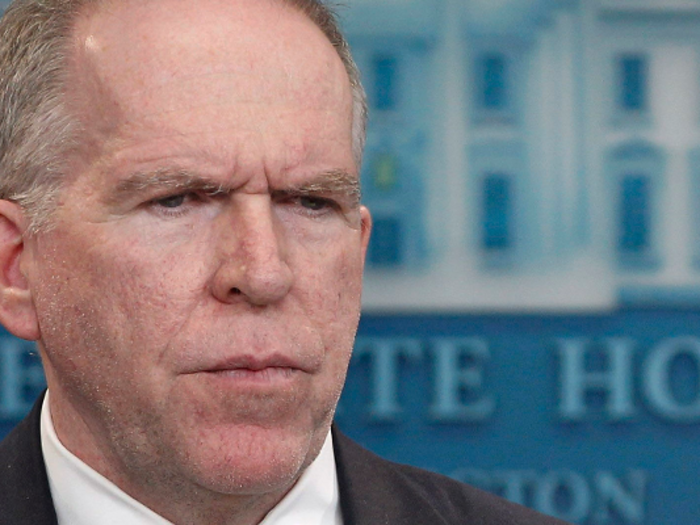
John Brennan: "The most important thing for anybody who's going to be taking on that responsibility, is use your first period of time, whether it be six, nine, 12 months, to learn as much as you can about the organization that you're running. Understand how it interacts within itself, how it inter-operates with the rest of the intelligence community and the US government. You really need to have that in-depth understanding and knowledge in order for you to have the wisdom to be able to leverage it for the best of the country's security. And there is a distinction between knowledge and wisdom in my mind. I felt that when I joined the agency, I had a fair amount of knowledge about the Middle East and Arabic and terrorism and other things. But wisdom is using that knowledge and having the ability then to see opportunities, risks, challenges, things that you need to do."
Popular Right Now
Advertisement